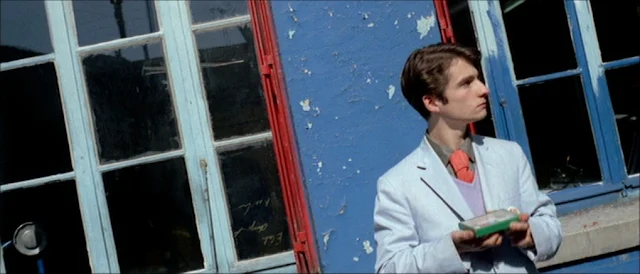Stamboul Quest (Sam Wood, 1934)
Cast: Myrna Loy, George Brent, Lionel Atwill, C. Henry Gordon, Rudolph Anders, Mischa Auer. Screenplay: Herman J. Mankiewicz, based on a story by Leo Birinsky. Cinematography: James Wong Howe. Art direction: Cedric Gibbons. Film editing: Hugh Wynn. Music: William Axt.
Stamboul Quest is a middling spy-vs.-spy romance based very loosely (i.e., hardly at all) on the career of the World War I German spy known as “Fräulein Doktor” (real name Elsbeth Schragmüller). The film makes a nod to the better-known German spy Mata Hari, herself the titular subject of a 1931 MGM film directed by George Fitzmaurice and starring Greta Garbo and Ramon Novarro. Mostly Stamboul Quest is an excuse for Myrna Loy to slink about in various alluring states of dress and undress. There is, for example, a scene in which Fräulein Doktor (aka Helena Bohlen) takes a bath with the door open between her and the spymaster Herr von Sturm (Lionel Atwill), and a key moment in the plot turns on Helena’s slipping down one shoulder of her evening gown to allow the Turkish spy Ali Bey (C. Henry Gordon) to write a message in invisible ink on her naked back. Loy does all of this nonsense with grace and wit. Unfortunately, she’s matched romantically in the movie with George Brent as an American studying medicine at Leipzig. Brent was unaccountably borrowed from Warner Bros. for the film even though MGM had a stable of contract leading men that included Clark Gable and Loy’s frequent co-star William Powell. As a leading man, Brent was never much more than a foil for powerhouse leading ladies like Bette Davis or Barbara Stanwyck, and it’s awfully hard to see why Fräulein Doktor should fall in love so swiftly and thoroughly with him. Stamboul Quest is a sort of bridge in Loy’s career from the earlier roles in which she was cast as a femme fatale, often with exotic origins, and the years in which she took on the image of a witty, sophisticated wife or girlfriend, often paired with Powell, as in The Thin Man (W.S. Van Dyke, 1934) and its string of sequels.























































